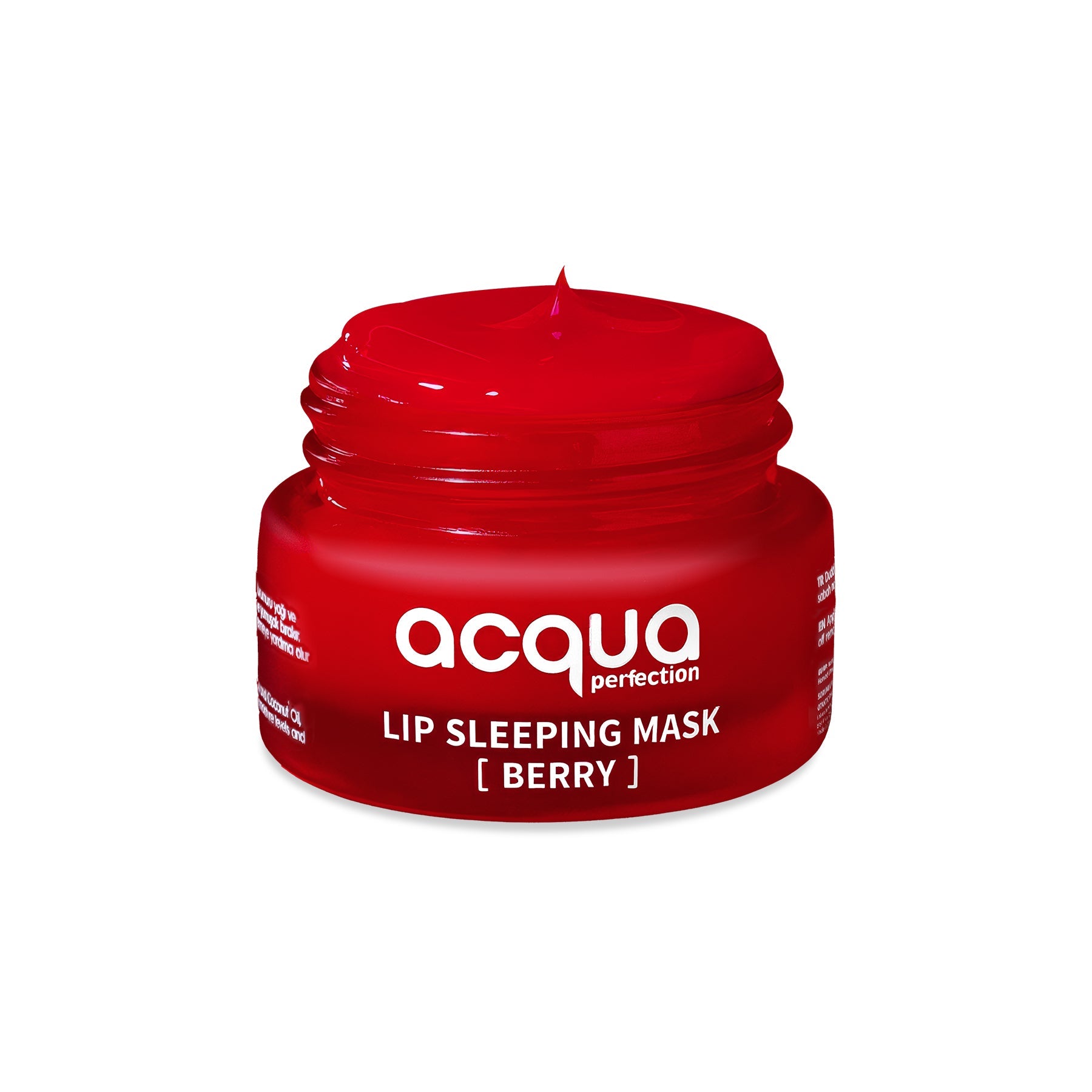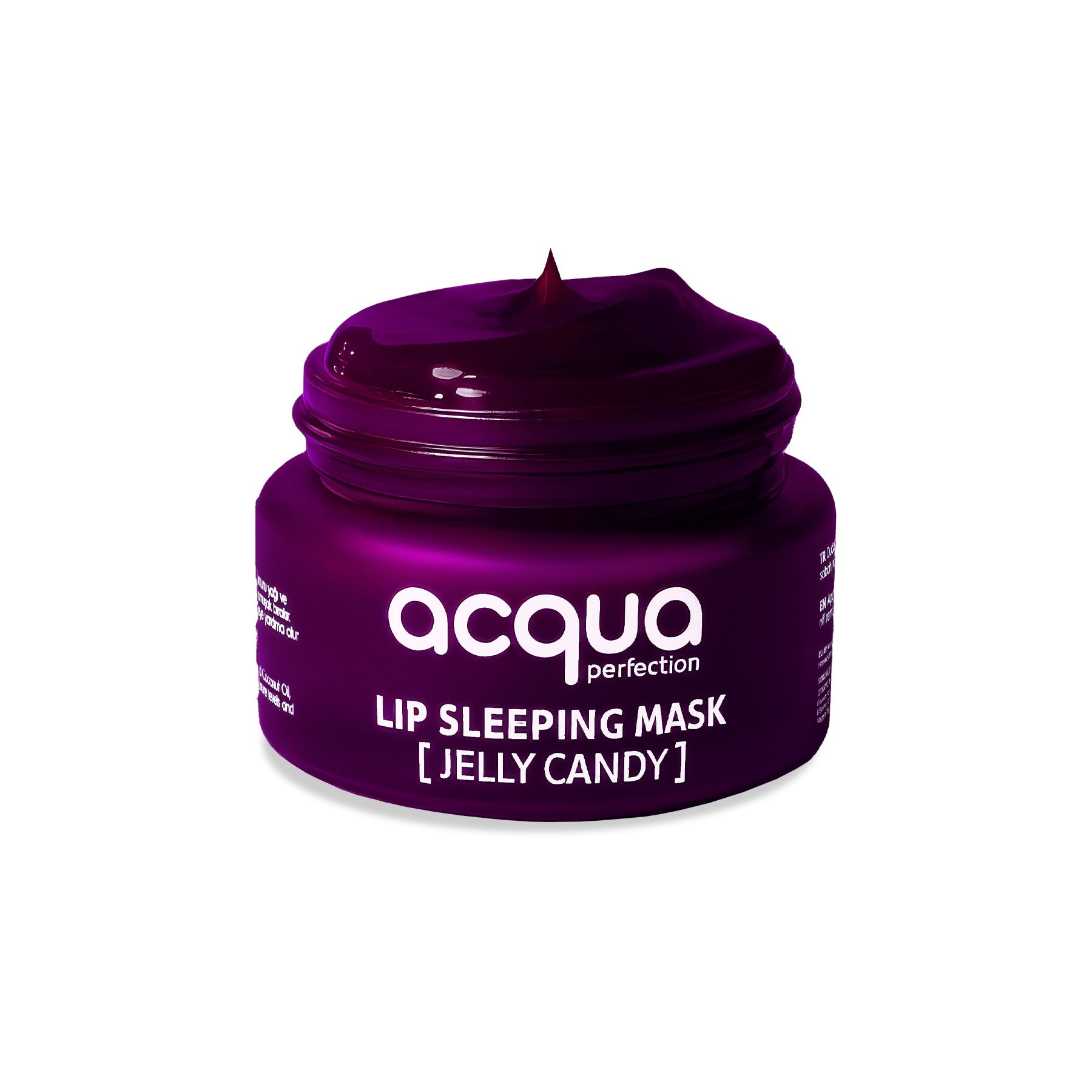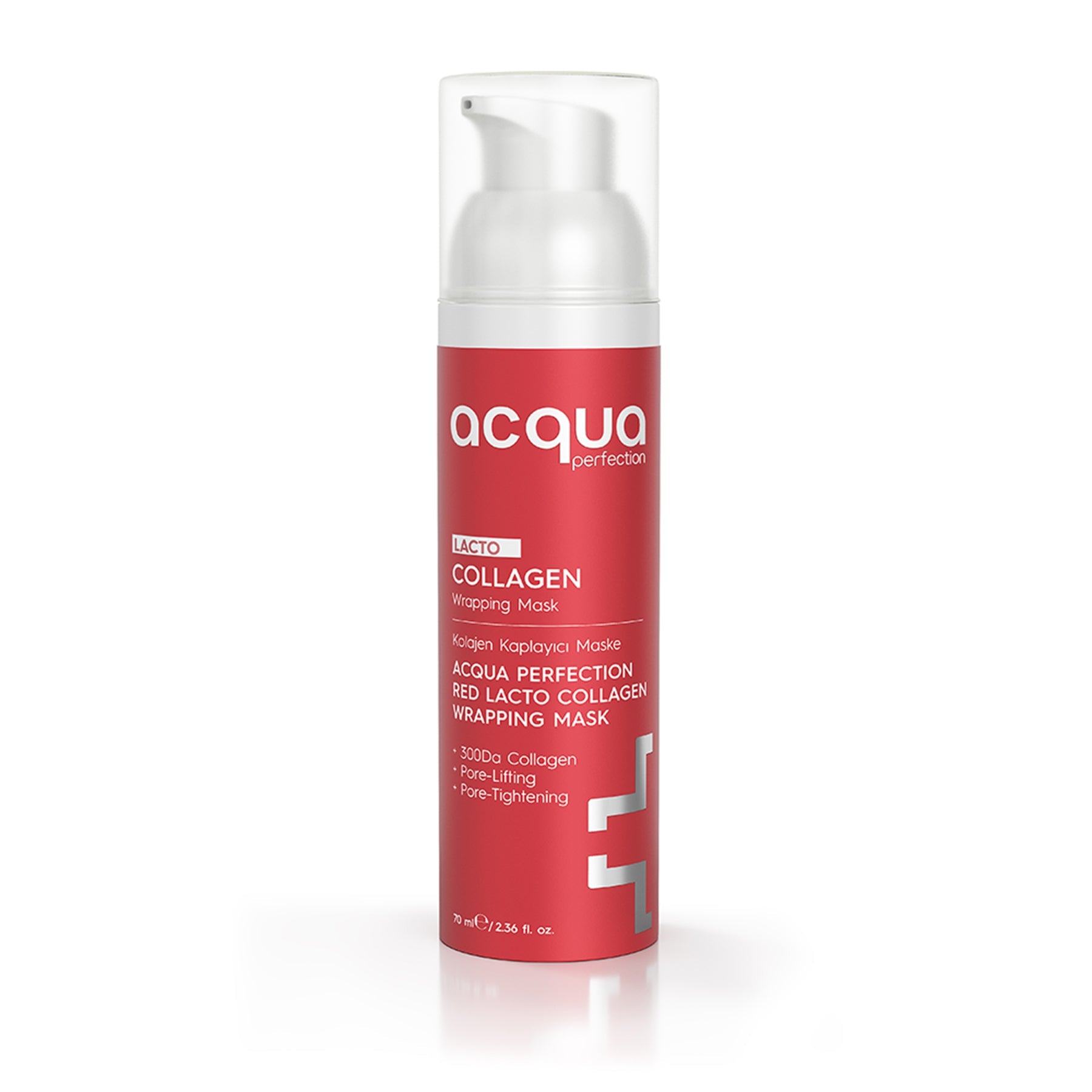-
100% Natural Date Molasses 400g (14.11 oz)


100% Natural Date Molasses 400g (14.11 oz)
- Regular price
- €14,99
- Sale price
- €14,99
- Regular price
-
€14,99
-
Acqua Perfection Derma Pure Clear Wrapping Mask 70ml (2.37 fl oz)


Acqua Perfection Derma Pure Clear Wrapping Mask 70ml (2.37 fl oz)
- Regular price
- €29,90
- Sale price
- €29,90
- Regular price
-
€29,90
-
Acqua Perfection Hydratox Hyaluron Wrapping Mask 70ml (2.37 fl oz)


Acqua Perfection Hydratox Hyaluron Wrapping Mask 70ml (2.37 fl oz)
- Regular price
- €29,90
- Sale price
- €29,90
- Regular price
-
€29,90
-
Acqua Perfection Lip Sleeping Mask - Berry 20ml (0.68 fl oz)


Acqua Perfection Lip Sleeping Mask - Berry 20ml (0.68 fl oz)
- Regular price
- €24,90
- Sale price
- €24,90
- Regular price
-
€24,90
-
Acqua Perfection Lip Sleeping Mask - Vanilla 20ml (0.68 fl oz)


Acqua Perfection Lip Sleeping Mask - Vanilla 20ml (0.68 fl oz)
- Regular price
- €24,90
- Sale price
- €24,90
- Regular price
-
€24,90
-
Acqua Perfection Lip Sleeping Mask -Jelly Candy 20ml (0.68 fl oz)


Acqua Perfection Lip Sleeping Mask -Jelly Candy 20ml (0.68 fl oz)
- Regular price
- €24,90
- Sale price
- €24,90
- Regular price
-
€24,90
-
Acqua Perfection Phytox Cica B5 Wrapping Mask 70ml (2.37 fl oz)


Acqua Perfection Phytox Cica B5 Wrapping Mask 70ml (2.37 fl oz)
- Regular price
- €29,90
- Sale price
- €29,90
- Regular price
-
€29,90
-
Acqua Perfection Red Lacto Collagen Wrapping Mask 70ml (2.37 fl oz)


Acqua Perfection Red Lacto Collagen Wrapping Mask 70ml (2.37 fl oz)
- Regular price
- €29,90
- Sale price
- €29,90
- Regular price
-
€29,90
-
Acve Dates 1000g (35.27 oz) Prophet’s Dates with Aroma 100 Percent Original and Natural


Acve Dates 1000g (35.27 oz) Prophet’s Dates with Aroma 100 Percent Original and Natural
- Regular price
- €56,99
- Sale price
- €56,99
- Regular price
-
€56,99
-
Acve Dates 250g (8.82 oz) Prophet’s Dates with Aroma 100 Percent Authentic


Acve Dates 250g (8.82 oz) Prophet’s Dates with Aroma 100 Percent Authentic
- Regular price
- €26,99
- Sale price
- €26,99
- Regular price
-
€26,99
-
Acve Dates 250g (8.82 oz) Authentic Ajwa Dates from Medina 100 Percent Original


Acve Dates 250g (8.82 oz) Authentic Ajwa Dates from Medina 100 Percent Original
- Regular price
- €14,99
- Sale price
- €14,99
- Regular price
-
€14,99
-
Acve Dates 500g (17.64 oz) Prophet Dates with Aroma 100 Percent Original and Natural


Acve Dates 500g (17.64 oz) Prophet Dates with Aroma 100 Percent Original and Natural
- Regular price
- €29,99
- Sale price
- €29,99
- Regular price
-
€29,99
-
Acve Dates Double Premium Black Dates from Medina 1000g (35.27 oz)


Acve Dates Double Premium Black Dates from Medina 1000g (35.27 oz)
- Regular price
- €99,99
- Sale price
- €99,99
- Regular price
-
€99,99
-
Acve Dates Double Premium Black Dates from Medina 500g (17.64 oz)


Acve Dates Double Premium Black Dates from Medina 500g (17.64 oz)
- Regular price
- €52,99
- Sale price
- €52,99
- Regular price
-
€52,99
-
Acve Dates Gift Box Premium Dates in Elegant Metal Box 725g (25.57 oz)

Acve Dates Gift Box Premium Dates in Elegant Metal Box 725g (25.57 oz)
- Regular price
- €58,99
- Sale price
- €58,99
- Regular price
-
€58,99
-
Acve Dates in Kraft Gift Packs Premium Medina Dates 50 x 7 Pack


Acve Dates in Kraft Gift Packs Premium Medina Dates 50 x 7 Pack
- Regular price
- €147,99
- Sale price
- €147,99
- Regular price
-
€147,99
-
Ajwa Dates Gift Pack Premium 7 Piece 60g (2.12 oz)


Ajwa Dates Gift Pack Premium 7 Piece 60g (2.12 oz)
- Regular price
- €15,90
- Sale price
- €15,90
- Regular price
-
€15,90
-
Aladdin Fresco Thermavac Insulated Water Bottle 0.6 L (20.29 fl oz) Stainless Steel


Aladdin Fresco Thermavac Insulated Water Bottle 0.6 L (20.29 fl oz) Stainless Steel
- Regular price
- €24,90
- Sale price
- €24,90
- Regular price
-
€24,90
-
Almond Stuffed & Nutty Snack 5-Pack


Almond Stuffed & Nutty Snack 5-Pack
- Regular price
- €11,99
- Sale price
- €11,99
- Regular price
-
€11,99
-
Anita Oval Pearlescent Wicker Tray Decorative Serving Tray and Wall Decor


Anita Oval Pearlescent Wicker Tray Decorative Serving Tray and Wall Decor
- Regular price
- €27,61
- Sale price
- €27,61
- Regular price
-
€27,61
-
Authentic Turkish Coffee Gift Set with Copper Cezve & Lokum


Authentic Turkish Coffee Gift Set with Copper Cezve & Lokum
- Regular price
- €34,90
- Sale price
- €34,90
- Regular price
-
€34,90
-
Beyisa 925 Sterling Silver Heart Drop Necklace with 3 Color Gemstones


Beyisa 925 Sterling Silver Heart Drop Necklace with 3 Color Gemstones
- Regular price
- €18,99
- Sale price
- €18,99
- Regular price
-
€18,99
-
Beyisa 925 Sterling Silver Root Emerald Stone Earrings


Beyisa 925 Sterling Silver Root Emerald Stone Earrings
- Regular price
- €24,99
- Sale price
- €24,99
- Regular price
-
€24,99
-
Beyisa 925 Sterling Silver Root Sapphire Stone Earrings


Beyisa 925 Sterling Silver Root Sapphire Stone Earrings
- Regular price
- €24,99
- Sale price
- €24,99
- Regular price
-
€24,99
-
Beyisa Abundance Series Red Pomegranate Necklace 925 Sterling Silver


Beyisa Abundance Series Red Pomegranate Necklace 925 Sterling Silver
- Regular price
- €57,99
- Sale price
- €57,99
- Regular price
-
€57,99
-
Beyisa African Sunstone Cat's Eye Earrings 22K Gold


Beyisa African Sunstone Cat's Eye Earrings 22K Gold
- Regular price
- €24,99
- Sale price
- €24,99
- Regular price
-
€24,99
-
Beyisa Antique Series Mesopotamian Motif Women's Earrings


Beyisa Antique Series Mesopotamian Motif Women's Earrings
- Regular price
- €14,99
- Sale price
- €14,99
- Regular price
-
€14,99
-
Beyisa Antique Series Roman Coin Motif Women's Earrings


Beyisa Antique Series Roman Coin Motif Women's Earrings
- Regular price
- €28,99
- Sale price
- €28,99
- Regular price
-
€28,99
-
Beyisa Antique Series Star & Sun Silver Earrings 925 Sterling Silver


Beyisa Antique Series Star & Sun Silver Earrings 925 Sterling Silver
- Regular price
- €14,99
- Sale price
- €14,99
- Regular price
-
€14,99
-
Beyisa Aquamarine Stone Necklace 925 Sterling Silver


Beyisa Aquamarine Stone Necklace 925 Sterling Silver
- Regular price
- €16,99
- Sale price
- €16,99
- Regular price
-
€16,99
-
Beyisa Asian Series Black Onyx Ring 925 Sterling Silver


Beyisa Asian Series Black Onyx Ring 925 Sterling Silver
- Regular price
- €60,99
- Sale price
- €60,99
- Regular price
-
€60,99
-
Beyisa Authentic Series Amethyst Colored Stone Necklace 925 Sterling Silver


Beyisa Authentic Series Amethyst Colored Stone Necklace 925 Sterling Silver
- Regular price
- €48,99
- Sale price
- €48,99
- Regular price
-
€48,99
-
Beyisa Authentic Series Aquamarine Blue Stone Necklace 925 Sterling Silver


Beyisa Authentic Series Aquamarine Blue Stone Necklace 925 Sterling Silver
- Regular price
- €48,99
- Sale price
- €48,99
- Regular price
-
€48,99
-
Beyisa Authentic Series Red Garnet Colored Stone Necklace 925 Sterling Silver


Beyisa Authentic Series Red Garnet Colored Stone Necklace 925 Sterling Silver
- Regular price
- €48,99
- Sale price
- €48,99
- Regular price
-
€48,99
-
Beyisa Authentic Triangle Jewelry Set with Red Ruby 925 Sterling Silver


Beyisa Authentic Triangle Jewelry Set with Red Ruby 925 Sterling Silver
- Regular price
- €48,99
- Sale price
- €48,99
- Regular price
-
€48,99
-
Beyisa Authentic Turkish Jewelry Set with Turquoise Stones 925 Sterling Silver


Beyisa Authentic Turkish Jewelry Set with Turquoise Stones 925 Sterling Silver
- Regular price
- €33,99
- Sale price
- €33,99
- Regular price
-
€33,99
-
Beyisa Bereket Series Red Garnet Stone Gold Plated Women's Pomegranate Motif Silver Earrings 22K Gold


Beyisa Bereket Series Red Garnet Stone Gold Plated Women's Pomegranate Motif Silver Earrings 22K Gold
- Regular price
- €24,99
- Sale price
- €24,99
- Regular price
-
€24,99
-
Beyisa Blue Sapphire Hürrem Didar Sultan Earrings 925 Sterling Silver

Beyisa Blue Sapphire Hürrem Didar Sultan Earrings 925 Sterling Silver
- Regular price
- €29,99
- Sale price
- €29,99
- Regular price
-
€29,99
-
Beyisa Blue Sapphire Hürrem Sultan Adjustable Women's Ring 925 Sterling Silver

Beyisa Blue Sapphire Hürrem Sultan Adjustable Women's Ring 925 Sterling Silver
- Regular price
- €20,99
- Sale price
- €20,99
- Regular price
-
€20,99
-
Acve Dates Gift Box 70g (2.47 oz)Prophet’s Date Variety Special Gift Box


Acve Dates Gift Box 70g (2.47 oz)Prophet’s Date Variety Special Gift Box
- Regular price
- €6,74
- Sale price
- €6,74
- Regular price
-
€13,99














































































